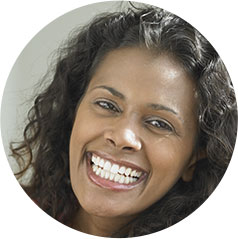It might seem strange to think about returning home, but it’s something a lot of travellers struggle with. Some say it’s harder to go home than to leave. But why? Well, whilst you might feel like you’ve changed and learnt a lot, home won’t have changed much at all.
This might sound comforting, but it ends up being frustrating. At first, it’s nice to see your friends and family – everyone is interesting in what you’ve been up to. They want to hear your stories and see your photos.
Before long, though, you’re sitting in your childhood bedroom and not only do you experience a daunting realisation that nothing at home has changed, but all the questions start coming. Do you have a job? What are your plans now? Have you met anyone? No-one bothered you with these questions while you were travelling. Coming home seems to be an anticlimactic end to a life-changing experience. It’s often referred to as reverse culture shock.
Adjusting to life at home
If you experience any of these emotions, here’s how to cope:
-

Give yourself time. Don’t expect everything to fall into place when you arrive home. Be patient, and remember that doing things like getting a job can take time. Rushing won’t make anything happen quicker; it’ll just tire you out.
-

Set yourself goals. The best plan of action is to give yourself realistic timescales for achieving goals. Start small with tasks like uploading all your photographs or updating your CV to increase your motivation. When you feel like you’re achieving small feats every day, those larger goals – such as getting a job – won’t seem so distant.
-

Try and make moving out one of those goals. Living with your parents after having the freedom of travelling doesn’t suit many people, so start talking to your friends about their plans or find a house share. Be sure to discuss this with your family first.
-

Remember you’re not the only one who is different. You’re not the first person to feel strange and frustrated by being home, nor will you be the last. People will soon get bored if you spend too much time complaining. Make sure you’re acting on the aspects of your return which are annoying you.
-

Be interested in your friends’ lives. It’s not all about you. Your friends will have some stories of their own – make sure you’re asking questions, as well as recalling your favourite memories.
-

Keep looking after your wellbeing. All the good habits you developed to look after your mental health while away – exercising, getting enough sleep, socialising with new people – still apply.
-

Book an appointment with your GP if required. If you feel you are not coping or need someone to talk to then book an appointment with your GP for a consultation. They will be able to help you and/or arrange any further support if felt necessary.

Advice from other travellers
Travel blogging has become increasingly popular in recent years. It means there’s an accessible supply of advice from like-minded individuals who’ve been there and done it.
-

On she goes, Emily Prado
“While a mental illness diagnosis might make you feel small or limited, diagnoses don’t have to define us.” Emily suggests, above all else, that you should remember your coping strategies that typically work at home and use these while you’re away. Oh, and give yourself a few days post-travelling to acclimatise yourself back to life at home.
-

Luke Tyburski
Luke admits there’s been a few times while travelling that he’s felt lousy because he didn’t enjoy every moment. “Regret, shame, and anger are all emotions that have gripped my mind when I couldn’t even enjoy a few days away while staring out over the endless horizon next to the sea.” Just because travelling affords you amazing opportunities, it doesn’t mean you’ll always feel great. But research, prepare and plan and everyone can have new experiences around this beautiful world we live in.
-

Vicky Flip Flip Travels, Vicky
“Living the life of a digital nomad, and largely by myself, has definitely had an effect on my mental health as a travel blogger.” Vicky discusses the burnout many travel bloggers feel, and how anyone who puts themselves out in the world personally in any way knows how hard it is, but emphasises how important it is not to compare your life to those you see on social media.
-

Lauren without fear, Lauren
Lauren suffers from anxiety, but travels extensively. She’s got two things to say which may comfort people in a similar position: “You’re not alone and there are coping mechanisms that work. The hard part is finding what works for you.” Something that works for most people, though, is doing nothing. Whether you call it mediation, resting your eyes, or you just take some time to relax, doing less can be more productive.
-

Earth Wandress, Evelina
For Evelina, travelling helped her heal. “It made me learn more about myself. It helped me find what I love and what I don’t like…traveling helped me realise what I wanted out of life. What I wanted to spend my life doing. What mattered to me.”
It’s all too easy to say ‘I couldn’t go travelling’. In fact, a huge 74% of people admitted that their mental health has stopped them travelling. Reasons why including feeling too overwhelmed or stressed, or a thought that others don’t care about those who don’t outwardly look like something’s wrong with them.
Travelling does highlight the best – and most difficult – aspects of both our physical and mental health. But with the right preparation, you can sway the balance far in favour of the good times and enjoy a once-in-a-lifetime experience.
